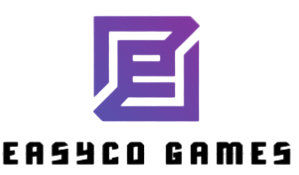Blockchain Innovations Transform Data Management and Security Worldwide
Blockchain technology has emerged as a transformative force in data management, fundamentally altering how information is stored, accessed, and secured. Unlike traditional centralized databases, blockchain employs a decentralized architecture that eliminates single points of failure and reduces vulnerability to hacking. By distributing data across a network of nodes, blockchain ensures transparency, immutability, and resilience. This paradigm shift is particularly valuable for industries where trust and data integrity are paramount, such as finance, healthcare, and supply chain management. One of the most significant advantages of blockchain lies in its ability to enhance data security. Transactions recorded on a blockchain are encrypted and linked together in a chronological sequence, making unauthorized alterations virtually impossible. Each block in the chain contains a cryptographic hash of the previous block, forming an immutable ledger that ensures accountability. This secure framework is increasingly being adopted to protect sensitive information, including personal identities and financial records, from breaches and unauthorized access. The transparent ledger allows for real-time monitoring of energy production, consumption, and distribution.

This helps in preventing energy theft, reduces billing discrepancies, and ensures that users are charged fairly based on their consumption. Beyond security, blockchain is revolutionizing data management by introducing smart contracts—self-executing agreements with predefined rules embedded directly into the blockchain. These contracts automatically enforce terms without requiring intermediaries, streamlining processes and reducing costs. For instance, in supply chains, smart contracts can trigger payments upon delivery verification, improving efficiency and transparency. Such innovations demonstrate blockchain’s potential to transform industries by optimizing workflows and minimizing human error. The technology’s decentralized nature also fosters data democratization, granting users greater control over their information. Traditional systems often concentrate data ownership in the hands of a few entities, raising concerns about misuse and privacy. Blockchain enables individuals to retain ownership of their data, granting access only to authorized parties. This empowerment aligns with growing demands for data sovereignty and privacy protection in an increasingly digital world. Blockchain’s potential extends beyond operational efficiency; it also supports global collaboration and trust-building.
Cardano News providing an indisputable record of transactions accessible to all participants, blockchain fosters transparency in multi-stakeholder environments. This feature is particularly useful in areas like international trade, where differing regulations and standards can complicate transactions. Blockchain bridges these gaps by establishing a shared, trustworthy framework that all parties can rely on, reducing disputes and accelerating cross-border operations. As blockchain technology matures, its integration with emerging technologies like artificial intelligence and the Internet of Things further enhances its capabilities. These synergies enable advanced predictive analytics, real-time monitoring, and automated decision-making, unlocking new possibilities for data-driven innovation. However, widespread adoption still faces challenges, including scalability, regulatory hurdles, and energy consumption. Addressing these issues will be crucial to realizing blockchain’s full potential and ensuring its sustainable growth as a cornerstone of the global digital economy. Lastly, in the energy sector, blockchain can enhance transparency in energy trading and grid management. By using smart contracts on a blockchain, energy producers and consumers can trade electricity securely and efficiently.

